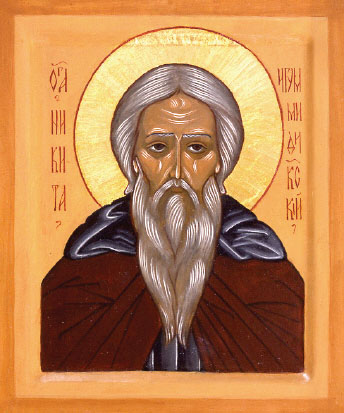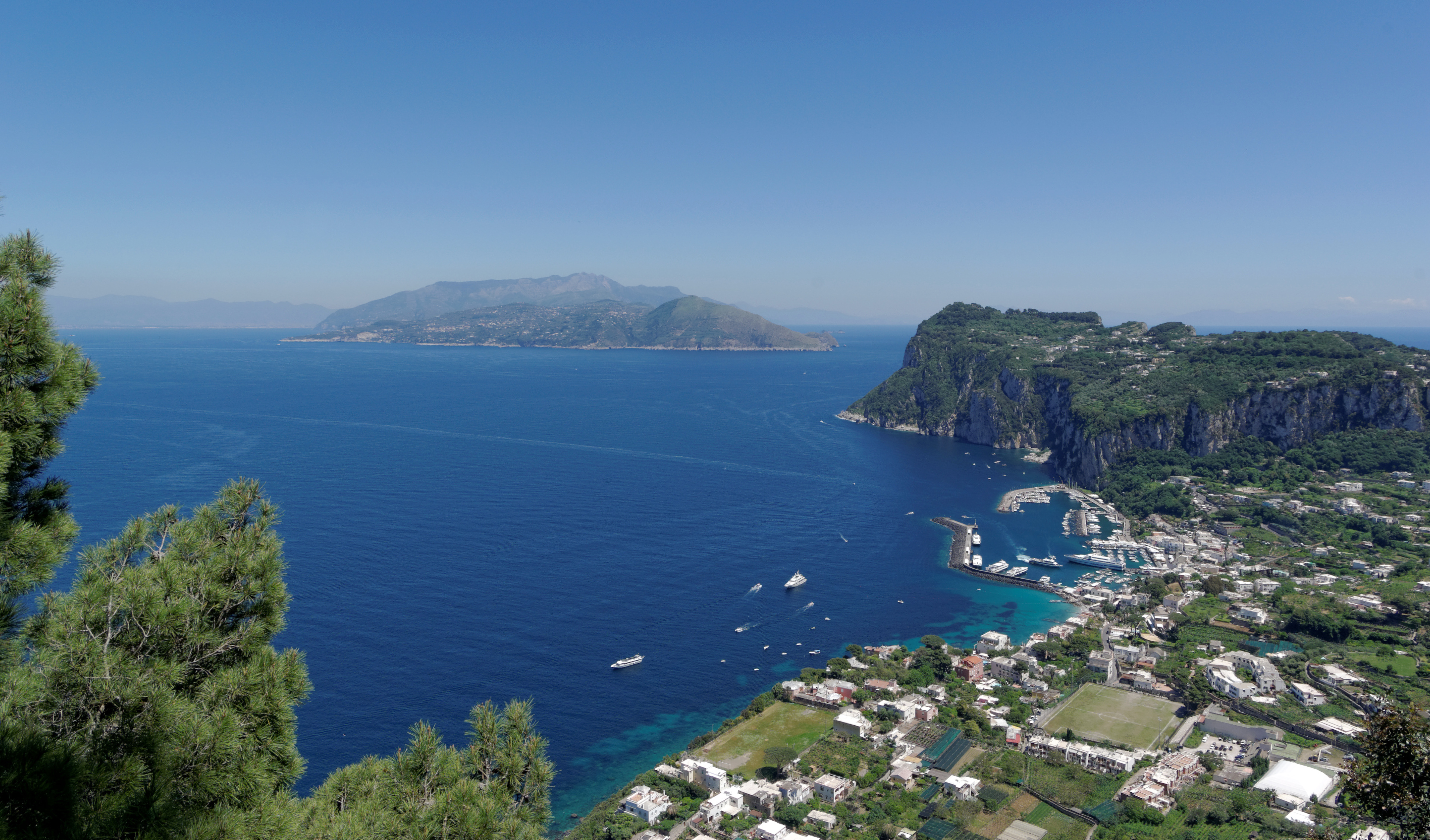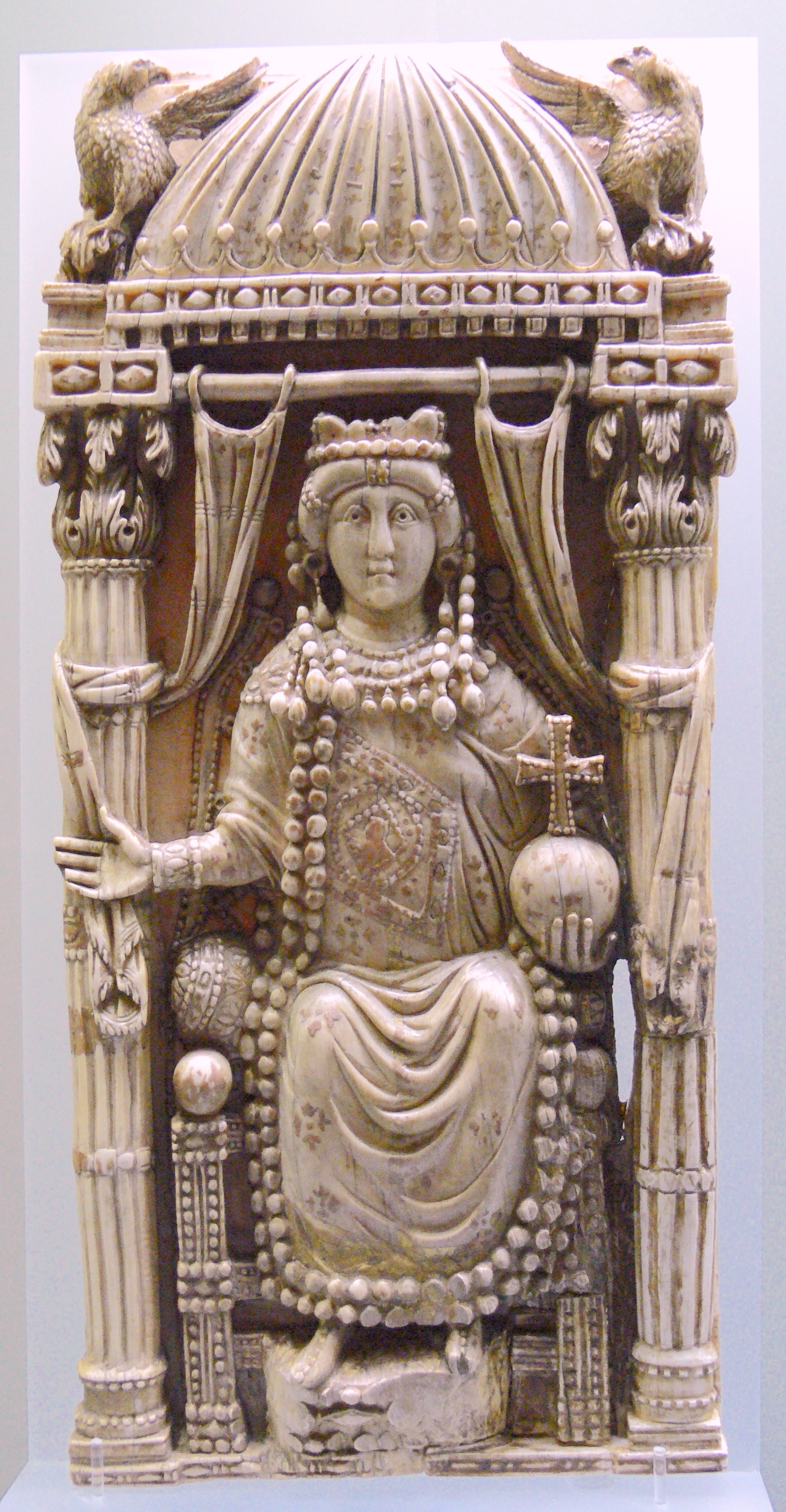|
Harbor Of Eutropius
The Harbor of Eutropius ( grc-gre, λιμήν Εὑτροπίου) was an artificial harbor east of Chalcedon (modern-day Kalamış), along the coast of Asia Minor, during the Byzantine Empire. It was constructed by order of Byzantine Emperor Justinian (), made of large moles of black stone. It was likely the smallest of the harbors opposite the Byzantine capital Constantinople, and served an unknown function. The harbor was the location for the execution of Emperor Maurice (), along with his sons, and later, the female members of his family. During the Siege of Constantinople of 717–718, the harbor was one of the landing grounds of the invading Umayyad forces. With the expansion of the maritime districts of nearby Kalamış and Fenerbahçe in modern times, nothing remains of the harbor. History The Harbor of Eutropius was placed east of Chalcedon (modern-day Kalamış), along the coast of Asia Minor in lands possessed by the Byzantine Empire. At the time of its construction, t ... [...More Info...] [...Related Items...] OR: [Wikipedia] [Google] [Baidu] |
Chalcedon
Chalcedon ( or ; , sometimes transliterated as ''Chalkedon'') was an ancient maritime town of Bithynia, in Asia Minor. It was located almost directly opposite Byzantium, south of Scutari (modern Üsküdar) and it is now a district of the city of Istanbul named Kadıköy. The name ''Chalcedon'' is a variant of Calchedon, found on all the coins of the town as well as in manuscripts of Herodotus's ''Histories'', Xenophon's '' Hellenica'', Arrian's '' Anabasis'', and other works. Except for the Maiden's Tower, almost no above-ground vestiges of the ancient city survive in Kadıköy today; artifacts uncovered at Altıyol and other excavation sites are on display at the Istanbul Archaeological Museum. The site of Chalcedon is located on a small peninsula on the north coast of the Sea of Marmara, near the mouth of the Bosphorus. A stream, called the Chalcis or Chalcedon in antiquity William Smith, LLD, ed. (1854). '' Dictionary of Greek and Roman Geography''"Chalcedon" and now ... [...More Info...] [...Related Items...] OR: [Wikipedia] [Google] [Baidu] |
Embayment
A bay is a recessed, coastal body of water that directly connects to a larger main body of water, such as an ocean, a lake, or another bay. A large bay is usually called a gulf, sea, sound, or bight. A cove is a small, circular bay with a narrow entrance. A fjord is an elongated bay formed by glacial action. A bay can be the estuary of a river, such as the Chesapeake Bay, an estuary of the Susquehanna River. Bays may also be nested within each other; for example, James Bay is an arm of Hudson Bay in northeastern Canada. Some large bays, such as the Bay of Bengal and Hudson Bay, have varied marine geology. The land surrounding a bay often reduces the strength of winds and blocks waves. Bays may have as wide a variety of shoreline characteristics as other shorelines. In some cases, bays have beaches, which "are usually characterized by a steep upper foreshore with a broad, flat fronting terrace".Maurice Schwartz, ''Encyclopedia of Coastal Science'' (2006), p. 129. Bays ... [...More Info...] [...Related Items...] OR: [Wikipedia] [Google] [Baidu] |
Luke The Stylite
Venerable Luke the Stylite (Greek: Λουκάς ό Στυλίτης; c. 879-979?) lived in Constantinople in the 10th century. He served as a soldier during the reign Constantine Porphyrogenitus the Byzantine Emperor. During battle against the Bulgarians Luke witnessed the death of several thousands of people. He believed God had preserved his life and he became a monk, and was later ordained as a presbyter. He decided to take up the ascetic and eremitic life of a stylite. After three years standing on the pillar, he went to Mount Olympos, and then to Constantinople, and finally to Chalcedon. For 45 years Luke lived atop a pillar near the city of Chalcedon in pursuit of sanctity in Christ. He is believed to have died circa 970 AD. Luke the Stylite is commemorated on 11 December in the Eastern Orthodox and Byzantine Rite Eastern Catholic Churches. See also *Simeon Stylites *Daniel the Stylite *Hermit A hermit, also known as an eremite ( adjectival form: hermitic or e ... [...More Info...] [...Related Items...] OR: [Wikipedia] [Google] [Baidu] |
Harbor Of Anthemius
A harbor (American English), harbour (British English; see spelling differences), or haven is a sheltered body of water where ships, boats, and barges can be docked. The term ''harbor'' is often used interchangeably with ''port'', which is a man-made facility built for loading and unloading vessels and dropping off and picking up passengers. Ports usually include one or more harbors. Alexandria Port in Egypt is an example of a port with two harbors. Harbors may be natural or artificial. An artificial harbor can have deliberately constructed breakwaters, sea walls, or jettys or they can be constructed by dredging, which requires maintenance by further periodic dredging. An example of an artificial harbor is Long Beach Harbor, California, United States, which was an array of salt marshes and tidal flats too shallow for modern merchant ships before it was first dredged in the early 20th century. In contrast, a natural harbor is surrounded on several sides of land. Examples of ... [...More Info...] [...Related Items...] OR: [Wikipedia] [Google] [Baidu] |
Umayyad Caliphate
The Umayyad Caliphate (661–750 CE; , ; ar, ٱلْخِلَافَة ٱلْأُمَوِيَّة, al-Khilāfah al-ʾUmawīyah) was the second of the four major caliphates established after the death of Muhammad. The caliphate was ruled by the Umayyad dynasty ( ar, ٱلْأُمَوِيُّون, ''al-ʾUmawīyūn'', or , ''Banū ʾUmayyah'', "Sons of Umayyah"). Uthman ibn Affan (r. 644–656), the third of the Rashidun caliphs, was also a member of the clan. The family established dynastic, hereditary rule with Muawiya ibn Abi Sufyan, long-time governor of Greater Syria, who became the sixth caliph after the end of the First Fitna in 661. After Mu'awiyah's death in 680, conflicts over the succession resulted in the Second Fitna, and power eventually fell into the hands of Marwan I from another branch of the clan. Greater Syria remained the Umayyads' main power base thereafter, with Damascus serving as their capital. The Umayyads continued the Muslim conquests, incorpo ... [...More Info...] [...Related Items...] OR: [Wikipedia] [Google] [Baidu] |
Phocas
Phocas ( la, Focas; grc-gre, Φωκάς, Phōkás; 5475 October 610) was Eastern Roman emperor from 602 to 610. Initially, a middle-ranking officer in the Eastern Roman army, Phocas rose to prominence as a spokesman for dissatisfied soldiers in their disputes with the court of the Emperor Maurice. When the army revolted in 602, Phocas emerged as the natural leader of the mutiny. The revolt proved to be successful and led to the capture of Constantinople and the overthrow of Maurice on 23 November 602 with Phocas declaring himself emperor on the same day. Phocas deeply mistrusted the uncooperative elite of Constantinople to whom he was a usurper and a provincial boor. He, therefore, attempted to base his regime on relatives whom he installed in high military and administrative positions. He immediately faced multiple challenges in domestic and foreign affairs to which he responded with little success. He dealt with domestic opposition with increasing ruthlessness which alie ... [...More Info...] [...Related Items...] OR: [Wikipedia] [Google] [Baidu] |
Klaus Belke
Klaus is a German, Dutch and Scandinavian given name and surname. It originated as a short form of Nikolaus, a German form of the Greek given name Nicholas. Notable persons whose family name is Klaus *Billy Klaus (1928–2006), American baseball player *Chris Klaus (born 1973), American entrepreneur *Frank Klaus (1887–1948), German-American boxer, 1913 Middleweight Champion *Fred Klaus (born 1967), German footballer *Josef Klaus (1910–2001), Chancellor of Austria 1966–1970 *Karl Ernst Claus (1796–1864), Russian chemist *Václav Klaus (born 1941), Czech politician, former President of the Czech Republic *Walter K. Klaus (1912–2012), American politician and farmer Notable persons whose given name is Klaus *Brother Klaus, Swiss patron saint *Klaus Augenthaler (born 1957), German football player and manager *Klaus Badelt (born 1967), German composer *Klaus Barbie (1913–1991), German SS-Hauptsturmführer and Holocaust Perpetrator *Klaus Bargsten (1911–2000), German ... [...More Info...] [...Related Items...] OR: [Wikipedia] [Google] [Baidu] |
Constantine The Great
Constantine I ( , ; la, Flavius Valerius Constantinus, ; ; 27 February 22 May 337), also known as Constantine the Great, was Roman emperor from AD 306 to 337, the first one to convert to Christianity. Born in Naissus, Dacia Mediterranea (now Niš, Serbia), he was the son of Flavius Constantius, a Roman army officer of Illyrian origin who had been one of the four rulers of the Tetrarchy. His mother, Helena, was a Greek Christian of low birth. Later canonized as a saint, she is traditionally attributed with the conversion of her son. Constantine served with distinction under the Roman emperors Diocletian and Galerius. He began his career by campaigning in the eastern provinces (against the Persians) before being recalled in the west (in AD 305) to fight alongside his father in Britain. After his father's death in 306, Constantine became emperor. He was acclaimed by his army at Eboracum ( York, England), and eventually emerged victorious in the civil wars against ... [...More Info...] [...Related Items...] OR: [Wikipedia] [Google] [Baidu] |
Anastasius I Dicorus
Anastasius I Dicorus ( grc-gre, Ἀναστάσιος, Anastásios; – 9 July 518) was Eastern Roman emperor from 491 to 518. A career civil servant, he came to the throne at the age of 61 after being chosen by the wife of his predecessor, Zeno. His reign was characterised by reforms and improvements in the government, finances, economy, and bureaucracy of the Empire. He is noted for leaving the empire with a stable government, reinvigorated monetary economy and a sizeable budget surplus, which allowed the Empire to pursue more ambitious policies under his successors, most notably Justinian I. Since many of Anastasius' reforms proved long-lasting, his influence over the Empire endured for many centuries. Anastasius was a Miaphysite and his personal religious tendencies caused tensions throughout his reign in the Empire which was becoming increasingly divided along religious lines. He is venerated as a saint by the Syriac Orthodox Church on 29 July. Early life and family ... [...More Info...] [...Related Items...] OR: [Wikipedia] [Google] [Baidu] |
Zeno (emperor)
Zeno (; grc-gre, Ζήνων, Zénōn; c. 425 – 9 April 491) was Eastern Roman emperor from 474 to 475 and again from 476 to 491. Domestic revolts and religious dissension plagued his reign, which nevertheless succeeded to some extent in foreign issues. His reign saw the end of the Western Roman Empire following the deposition of Romulus Augustus and the death of Julius Nepos, but he was credited with contributing much to stabilising the Eastern Empire. In ecclesiastical history, Zeno is associated with the '' Henotikon'' or "instrument of union", promulgated by him and signed by all the Eastern bishops, with the design of solving the monophysite controversy. The Henotikon was widely unpopular and eventually abandoned under Justin I. Biography Rise to power Early life Zeno's original name was Tarasis, and more accurately ''Tarasikodissa'' in his native Isaurian language ( la, Trascalissaeus).The sources call him "Tarasicodissa Rousombladadiotes", and for this rea ... [...More Info...] [...Related Items...] OR: [Wikipedia] [Google] [Baidu] |
Eutropius (protospatharios)
Eutropius ( grc-gre, Εὐτρόπιος, Eutrópios, good manner, link=no) is a Greek personal name. It may refer to: * Eutropius (historian), a fourth century Roman historian, and author of an abridgement of Roman history * Eutropius (consul 399), a Roman consul, put to death by the emperor Arcadius in AD 399 Church Fathers * Saint Eutropius of Saintes, a first- or third-century bishop, martyred while attempting to convert the Gauls * Saint Eutropius the Lector, a fifth-century lector in Constantinople martyred for supporting John Chrysostom * Saint Eutropius of Orange Eutropius of Orange (french: link=no, Saint Eutrope; died 475) was bishop of Orange, France, during the 5th century and probably since 463, in succession to Justus. Life Eutropius was born to the nobility, in Marseille, where he spent a wild an ..., fifth-century bishop of Arausio, now Orange in France * Saint Eutropius of Valencia, a Spanish bishop of the late sixth and early seventh century {{hndis ... [...More Info...] [...Related Items...] OR: [Wikipedia] [Google] [Baidu] |
Protospatharios
''Prōtospatharios'' ( el, πρωτοσπαθάριος) was one of the highest court dignities of the middle Byzantine period (8th to 12th centuries), awarded to senior generals and provincial governors, as well as to foreign princes. History The meaning of the title, "first '' spatharios''", indicates its original role as leader of the order (''taxis'') of the ''spatharioi'', the imperial bodyguards, was already attested in the 6th century. Probably under the Heraclians, the rank became an honorary dignity (Greek: δια βραβείου ἀξία, ''dia brabeiou axia''), and was henceforth bestowed to high-ranking theme commanders, senior court officials, and allied rulers.. The first concrete reference to a ''prōtospatharios'' occurs in the ''Chronicle'' of Theophanes the Confessor, who records "Sergios, ''prōtospatharios'' and '' stratēgos'' of Sicily" in 718. In the late 9th century, the ''prōtospatharios'' is recorded as ranking below the ''patrikios'' and above the '' ... [...More Info...] [...Related Items...] OR: [Wikipedia] [Google] [Baidu] |





